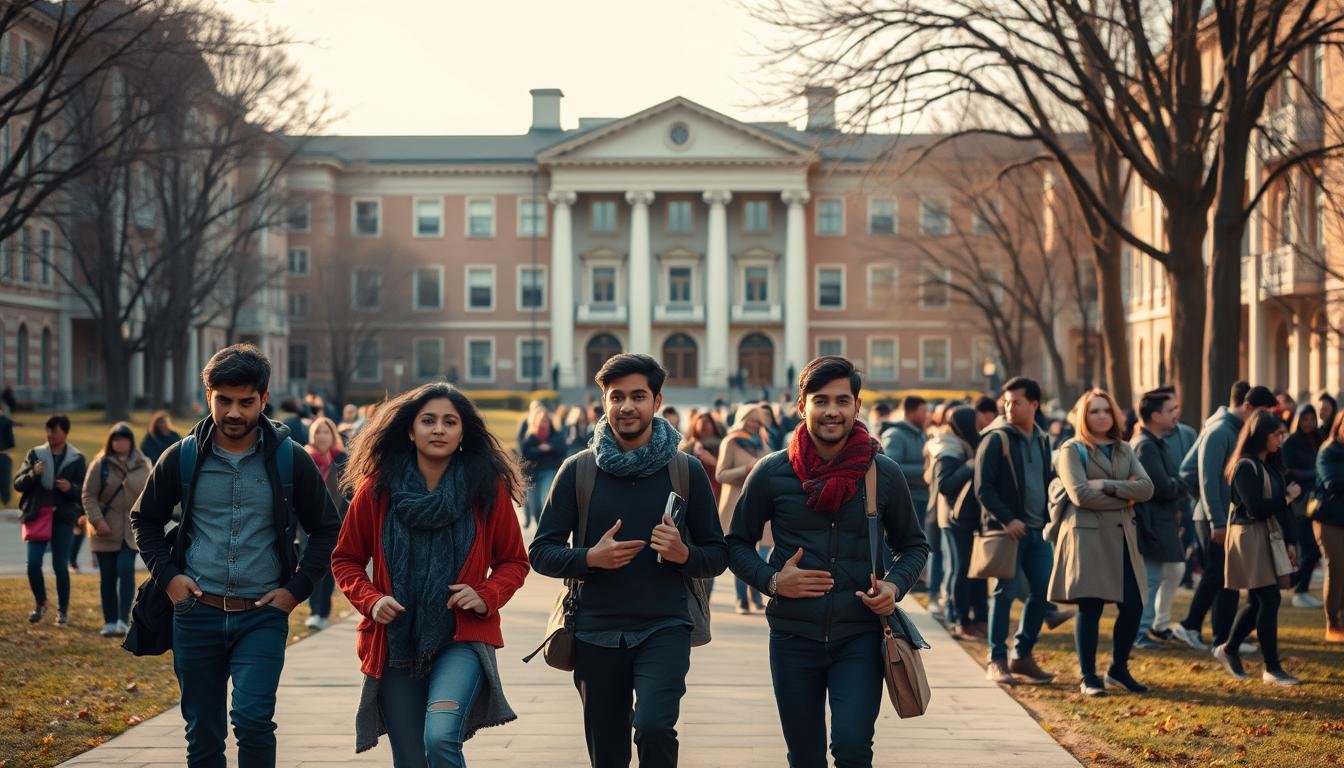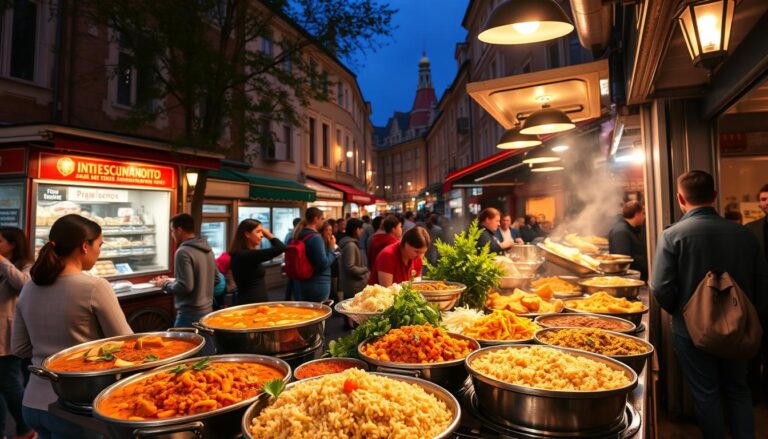Have you ever wondered what it’s like to step into a completely new world, far from home? For many, the first month in a foreign university is a mix of excitement, curiosity, and a bit of nervousness. It’s a time when every day brings something unexpected, and every experience shapes the journey ahead.
Moving to a new country for education is both thrilling and challenging. The academic environment is often rigorous, pushing students to grow in ways they never imagined. At the same time, adapting to a different way of life can feel overwhelming at first. But it’s also an opportunity to learn, explore, and discover a new perspective.
Institutions like Perm State Medical University offer a blend of quality education and affordability, making them a popular choice. The first month is crucial—it sets the tone for the entire experience. From making new friends to understanding local customs, this period is filled with moments that shape personal and academic growth.
Join us as we dive into the unique experiences of starting life in a foreign university. We’ll explore the highs, the lows, and everything in between. Let’s uncover what makes this journey so transformative.
Introduction: Our Journey to a New Culture
The journey to study abroad is filled with anticipation and challenges. It’s a time of growth, discovery, and adapting to a new way of life. For many, Russian universities offer a unique blend of quality education and affordability, making them a popular choice. This is an opportunity to explore a different culture while pursuing academic goals.
Setting the Stage for Study Abroad
Choosing to study in Russia is a decision driven by several factors. The affordability of education, coupled with global recognition of degrees, makes it an attractive option. Universities here provide a supportive environment for international students, including dedicated services to ease the transition. This is a chance to immerse yourself in a diverse academic community.
What to Expect in the First Month
The first month is a whirlwind of experiences. You’ll meet peers from various backgrounds, face language barriers, and adapt to new teaching methods. Staying connected with family back home can provide comfort during this time. Every experience, whether challenging or rewarding, shapes your journey ahead.
| Aspect | Details |
|---|---|
| Academic Environment | Rigorous and practical-focused teaching methods. |
| Social Life | Opportunities to make friends from diverse cultures. |
| Support Systems | University services to help with adaptation. |
| Challenges | Language barriers and cultural adjustments. |
This is just the beginning of our exploration. In the upcoming sections, we’ll delve deeper into specific aspects of this transformative journey. For more insights on affordable study options, check out our guide on studying MBBS abroad at low cost.
Examining cultural shock indian students russia: A Closer Look
Adapting to a foreign education system brings unique challenges and opportunities. For many, the initial weeks are a mix of excitement and adjustment. The differences in teaching methods, social norms, and daily routines can feel overwhelming at first.
One of the most noticeable contrasts is the academic system. In Russia, the focus is often on practical training and independent study. This approach can be a significant shift for those accustomed to a more structured learning environment. The challenge lies in adapting to this new style while maintaining academic performance.
Social interactions also highlight cultural differences. Greetings, personal space, and even meal times can vary greatly. These small but meaningful contrasts shape everyday experiences. For instance, the emphasis on punctuality and formality in Russia may differ from what some are used to.
Language barriers add another layer of complexity. While many universities offer support, learning Russian remains a key challenge. It’s not just about communication—it’s about understanding the culture behind the words. This process can be both frustrating and rewarding.
Personal identities play a role in this adaptation. Balancing one’s own traditions with local customs is a delicate act. Celebrating festivals from home while embracing Russian traditions creates a unique blend of experiences. This interplay enriches the journey and fosters personal growth.
For those considering this path, understanding these challenges is crucial. Programs like MBBS in Russia offer a supportive environment for international learners. The first month sets the tone for the entire experience, making it a time of discovery and resilience.
Initial Encounter: Navigating the Language Barrier
Language can be both a bridge and a barrier when starting life in a foreign land. For many of us, the first challenge is understanding and being understood. The Russian language, with its unique alphabet and grammar, feels like a puzzle waiting to be solved.
In classrooms, the struggle is real. Professors speak quickly, and technical terms can be hard to grasp. Outside, everyday tasks like ordering food or asking for directions become mini-adventures. This language barrier can feel isolating, but it’s also a chance to grow.
Learning Russian Basics and Resources
To tackle this challenge, we turned to language classes offered by universities. These classes focus on essential phrases and grammar, helping us communicate better. Mobile apps like Duolingo and Babbel became our daily companions, offering bite-sized lessons that fit into busy schedules.
Books and online resources also played a key role. Flashcards helped with vocabulary, while YouTube tutorials made pronunciation easier. Every small step brought us closer to understanding and being understood.
Using Language Classes and Apps
Practice is key. We used our new skills in real-life situations, from ordering coffee to chatting with classmates. Mistakes were common, but each one taught us something new. Over time, the language barrier became less daunting.
Persistence pays off. With consistent effort, we started to see progress. Conversations became smoother, and confidence grew. What once felt impossible now feels within reach.
Adapting to Russian Social Etiquette
Every country has its own set of unwritten rules that shape daily interactions. In Russia, social etiquette plays a significant role in how people connect and communicate. For us, understanding these norms was essential to building meaningful relationships and feeling at home.
Understanding Local Greetings and Formalities
Greetings in Russia are often formal, especially in professional settings. A firm handshake is common, accompanied by direct eye contact. This was a noticeable difference from the traditional “namaste” we were used to back home. Adapting to this custom required practice, but it helped us blend in better.
In informal settings, a simple “hello” or “hi” suffices. However, addressing someone by their first name without permission is considered impolite. Learning these nuances was crucial for fostering respect and understanding in our interactions.
Respecting Personal Space and Timing
Personal space is highly valued in Russia. People tend to maintain a certain distance during conversations, which felt different from the closer proximity we were accustomed to. Adjusting to this norm helped us avoid unintentional discomfort.
Punctuality is another key aspect of Russian social etiquette. Being on time is seen as a sign of respect. This emphasis on timing encouraged us to plan our days more carefully, ensuring we were never late for meetings or events.
Small gestures, like bringing a small gift when visiting someone’s home, are also appreciated. These practices, though simple, reflect the hospitality and thoughtfulness ingrained in the local tradition.
By embracing these differences, we not only adapted to the social environment but also deepened our appreciation for the country’s unique customs. This understanding enriched our daily interactions, both on campus and in the city.
Experiencing Russian Culture and Traditions
Immersing ourselves in Russian traditions felt like stepping into a vibrant tapestry of history and celebration. Every festival and event became a window into the country’s rich heritage. From lively New Year’s celebrations to solemn historical commemorations, each experience deepened our connection to this fascinating culture.
Participating in Festivals and Celebrations
One of the most memorable experiences was joining the New Year’s festivities. The streets were alive with lights, music, and laughter. Traditional foods like Olivier salad and blini added a unique flavor to the celebration. These moments not only brought joy but also helped us understand the significance of such events in Russian life.
We also attended Maslenitsa, a week-long festival marking the end of winter. The highlight was the burning of the effigy, symbolizing the farewell to cold weather. These festivals became a way to bond with locals and celebrate together.
Embracing Local Customs and Historical Heritage
Exploring historical landmarks was another way we connected with the country’s past. Visits to the Kremlin in Moscow and the Hermitage Museum in St. Petersburg were awe-inspiring. Each site told a story of Russia’s rich history and artistic achievements.
We also embraced local customs, such as the tradition of bringing gifts when visiting someone’s home. These small gestures helped us build meaningful relationships and feel more integrated into the community.
For those considering studying abroad, these experiences offer a unique opportunity for personal growth. To learn more about balancing academic life with cultural exploration, check out our guide on living and studying abroad.
Maintaining Our Indian Cultural Identity Abroad
Living abroad offers a unique chance to blend old traditions with new experiences. For us, staying connected to our roots while adapting to a new environment has been both challenging and rewarding. It’s a journey of balancing familiarity with exploration, and it shapes who we are.
Building Community and Celebrating Indian Festivals
One of the most significant ways we’ve maintained our identity is by forming tight-knit communities. These groups provide a sense of belonging and make it easier to celebrate festivals like Diwali and Holi. Gathering with friends to prepare traditional food and share stories keeps us connected to home.
We also organize cultural events that showcase our heritage. These activities not only help us preserve our traditions but also introduce them to others. It’s a way to share our culture while learning about new ones.
Balancing Tradition with New Experiences
Adapting to a new culture doesn’t mean leaving our own behind. We’ve found ways to integrate Indian customs into our daily lives. For example, cooking traditional meals or wearing ethnic attire on special occasions helps us stay grounded.
At the same time, we embrace local traditions and explore Russian culture. This balance enriches our experience and broadens our perspective. It’s about finding harmony between the old and the new.
| Aspect | Details |
|---|---|
| Community Building | Forming groups to celebrate festivals and share traditions. |
| Festivals | Organizing events for Diwali, Holi, and other Indian celebrations. |
| Food | Preparing traditional meals to stay connected to home. |
| Balance | Integrating Indian customs while embracing Russian culture. |
Family and friends play a crucial role in this journey. Their support reminds us of who we are and where we come from. Whether it’s a phone call home or a visit to an Indian restaurant, these moments keep our identity alive.
Navigating Academic Differences in Russian Universities
Stepping into a new academic system can feel like learning a new language. The teaching methods, examination styles, and daily coursework are often different from what we’re used to. This transition requires patience, adaptability, and a willingness to embrace change.

Understanding Teaching Methods and Practical Training
In Russian universities, the focus is heavily on practical training. Unlike the theoretical approach common in other systems, here, hands-on experience is prioritized. This shift can be challenging but also rewarding. It pushes us to apply knowledge in real-world scenarios, enhancing our skills.
Lectures are often interactive, encouraging discussions and critical thinking. Lab sessions and tutorials are integral parts of the curriculum. These methods help us understand concepts deeply and prepare for professional challenges.
Adjusting to Examination and Study Formats
Examinations in Russia are structured differently. Instead of relying solely on written tests, oral exams and practical assessments are common. This format tests not just our knowledge but also our ability to communicate and think on our feet.
Daily coursework includes assignments, group projects, and presentations. These tasks require time management and teamwork. Adapting to this system has taught us valuable skills that go beyond academics.
| Aspect | Russian Universities | Other Systems |
|---|---|---|
| Teaching Focus | Practical training | Theoretical approach |
| Examination Style | Oral and practical assessments | Written tests |
| Coursework | Group projects, presentations | Individual assignments |
Support systems play a crucial role in this transition. Universities offer resources like language classes and academic advisors to help international learners. These services make the adjustment smoother and ensure we succeed in our studies.
Adapting to a new academic culture is a continuous process. It’s about bridging differences, embracing new methods, and growing as individuals. This journey shapes not just our education but also our future careers.
Finding Emotional Support: Overcoming Homesickness
Being far from home can stir a mix of emotions, especially in the first few weeks. For many, homesickness is a common experience. It’s a feeling of longing for the familiar—family, friends, and the comfort of home. But with the right strategies, we can navigate these emotions and find balance in our new environment.
Staying Connected with Family and Friends
One of the most effective ways to combat homesickness is staying connected with loved ones. Regular phone or video calls help bridge the distance. Apps like WhatsApp and Zoom make it easy to share updates and feel closer to home. These moments of connection remind us of the support waiting for us back home.
Building a circle of friends in our new environment is equally important. Sharing experiences with peers who understand our journey creates a sense of belonging. Whether it’s through university events or casual meetups, these connections become our second family.
Strategies for Coping with Loneliness
Loneliness can feel overwhelming, but there are ways to manage it. Here are some strategies we’ve found helpful:
- Join Social Activities: Participating in clubs or events helps us meet new people and stay engaged.
- Explore the Local Area: Discovering new places distracts from feelings of isolation and adds excitement to our routine.
- Maintain a Routine: A structured daily schedule provides stability and reduces stress.
- Practice Self-Care: Taking time for hobbies, exercise, or relaxation improves mental well-being.
Having a robust support system is crucial. Whether it’s family, friends, or university resources, knowing we’re not alone makes all the difference. These strategies help us turn challenges into opportunities for growth.
Travel and Exploration: Discovering Russian Cities
Traveling across Russia offers a unique blend of history and adventure. Every city we visit feels like a new chapter in a fascinating story. From iconic landmarks to hidden gems, these urban landscapes enrich our understanding of the country.
Exploring Historical Landmarks
Our journey began with visits to historical sites that tell the story of Russia’s past. The Kremlin in Moscow and the Hermitage Museum in St. Petersburg left us in awe. These landmarks are not just tourist spots—they are windows into the country’s rich heritage.
In Volgograd, we stood before the Rodina-Mat Zovyeot statue, a symbol of resilience and courage. It’s taller than the Statue of Liberty, a reminder of the sacrifices made during the Battle of Stalingrad. These experiences deepened our appreciation for the country’s history.
Everyday Adventures and Local Experiences
Beyond the landmarks, we immersed ourselves in everyday life. Exploring local markets, trying traditional dishes, and attending cultural events became part of our routine. Each adventure added a new layer to our experience.
We also took time to connect with locals. Conversations with shopkeepers, students, and even strangers on the train revealed the warmth and hospitality of the people. These interactions made us feel more at home in this new environment.
| Activity | Experience |
|---|---|
| Historical Tours | Visited the Kremlin, Hermitage Museum, and Rodina-Mat Zovyeot statue. |
| Culinary Exploration | Tried traditional dishes like borscht and blini at local markets. |
| Cultural Events | Attended festivals and performances showcasing Russian traditions. |
| Local Interactions | Engaged with locals to learn about their daily lives and customs. |
Traveling across Russia has been both fun and educational. It’s an opportunity to see the world through a different lens. These experiences have not only enriched our time here but also shaped our personal growth as international learners.
Managing Finances and Budgeting Abroad
Managing finances in a new country can feel like solving a puzzle with unfamiliar pieces. Every expense, from food to transportation, requires careful planning. For us, budgeting became a crucial skill to ensure we could enjoy our time abroad without financial stress.
One of the first challenges we faced was understanding the cost of living. Prices for everyday items often differed from what we were used to back home. This made tracking expenses essential. We started by creating a monthly budget, allocating funds for necessities like rent, groceries, and transportation.
Practical Budgeting Tips for Students
To stay on track, we used apps to monitor our spending. These tools helped us identify areas where we could cut costs. Student discounts were a lifesaver, offering savings on everything from public transport to entertainment. We also learned to prioritize needs over wants, ensuring we had enough for essentials.
Meal planning was another effective strategy. Cooking at home not only saved money but also allowed us to enjoy familiar flavors. We discovered affordable local markets where we could buy fresh ingredients. Occasionally, we treated ourselves to dining out, but we always looked for budget-friendly options.
Controlling Daily Expenses in a New Country
Transportation costs added up quickly, so we explored cost-effective options. Walking or cycling became our go-to for short distances. For longer trips, we relied on student passes or shared rides. These small adjustments made a big difference in our monthly expenses.
Leisure activities were another area where we found ways to save. Instead of expensive outings, we explored free or low-cost attractions. Parks, museums with student discounts, and local festivals became our favorite spots. These experiences enriched our time abroad without straining our budget.
| Category | Tips |
|---|---|
| Food | Cook at home, shop at local markets, limit dining out. |
| Transportation | Use student passes, walk or cycle, share rides. |
| Leisure | Explore free attractions, attend local events, use discounts. |
| Budgeting | Track expenses, prioritize needs, use budgeting apps. |
Finding affordable Indian restaurants was a highlight. These spots offered a taste of home and became our comfort zones. We also experimented with cooking traditional dishes using local ingredients. This blend of familiar and new made our culinary journey exciting.
Financial planning is a key part of the study abroad experience. By managing our money wisely, we ensured we could focus on our studies and enjoy our time in this new country. For more tips on navigating life abroad, check out our guide on tips for Indian students studying MBBS.
Building Friendships and Networking
Building connections in a new environment is key to thriving as an international learner. Friendships and networks not only enrich our social lives but also help us navigate academic challenges. In a foreign system, these bonds become our support system, making the transition smoother and more enjoyable.
Cultural Exchanges with Local and International Peers
One of the most rewarding aspects of studying abroad is the opportunity to interact with people from diverse backgrounds. We’ve shared meals, stories, and traditions with both local peers and fellow international students. These exchanges have deepened our understanding of different cultures and broadened our perspectives.
Events like cultural nights and language exchange programs have been particularly impactful. They provide a platform to showcase our heritage while learning about others. These activities not only break the language barrier but also foster a sense of belonging.
Student Clubs and Social Activities
Joining student clubs has been a highlight of our experience. Whether it’s a sports team, a debate society, or a music group, these activities bring people together. They create spaces where we can connect over shared interests and build lasting friendships.
University-organized events, such as welcome parties and city tours, also play a crucial role. They help us meet new people and explore our surroundings. These gatherings often lead to unexpected connections and memorable experiences.
| Activity | Benefit |
|---|---|
| Cultural Nights | Foster understanding and celebrate diversity. |
| Language Exchange | Break language barriers and improve communication. |
| Student Clubs | Build connections over shared interests. |
| University Events | Encourage networking and exploration. |
These friendships and networks have been invaluable. They’ve helped us overcome challenges, celebrate successes, and create a home away from home. By embracing these opportunities, we’ve not only enriched our time abroad but also grown as individuals.
Personal Growth and Life Lessons from Russia
Living in a foreign land has been a journey of self-discovery and transformation. Every challenge we faced became an opportunity to grow, both personally and academically. This experience has shaped us in ways we never imagined, teaching us resilience, adaptability, and the value of embracing new perspectives.
Developing Resilience and Adaptability
Adapting to a new educational system and lifestyle was no small feat. The practical-focused teaching methods in Russian universities pushed us to think independently and apply knowledge in real-world scenarios. At first, this approach felt overwhelming, but over time, it became a valuable skill.
Language barriers added another layer of complexity. Learning Russian was a challenge, but it also became a source of pride. Every conversation, no matter how small, felt like a victory. These experiences taught us to persevere and find solutions, even when the path seemed unclear.
Broadening Perspectives Through Cultural Immersion
Cultural immersion played a significant role in our growth. Participating in local festivals, exploring historical landmarks, and interacting with locals enriched our understanding of the country’s heritage. These experiences broadened our horizons and helped us appreciate the beauty of diversity.
We also learned to balance our traditions with new customs. Celebrating Indian festivals while embracing Russian traditions created a unique blend of experiences. This harmony enriched our journey and deepened our connection to both cultures.
| Aspect | Lessons Learned |
|---|---|
| Resilience | Overcoming academic and language challenges. |
| Adaptability | Adjusting to a new educational system and lifestyle. |
| Cultural Immersion | Broadening perspectives through local traditions and history. |
| Personal Growth | Building confidence and independence through diverse experiences. |
Our time in Russia has been more than just an academic pursuit. It’s been a transformative journey that has prepared us for future challenges. By embracing every experience, we’ve grown into more resilient, adaptable, and open-minded individuals.
Opportunities and Challenges in a New Environment
Stepping into a new environment as an international learner brings a mix of challenges and opportunities. Every day presents a chance to grow, adapt, and discover something new. While the journey can be daunting, it’s also filled with moments that shape us into more resilient and open-minded individuals.
Balancing Obstacles with Exciting Prospects
One of the first challenges we faced was adapting to the colder climate. The weather was a stark difference from what we were used to, but it also taught us to prepare and stay resilient. Similarly, the academic system here emphasizes practical training, which pushed us to think independently and apply knowledge in real-world scenarios.
Language barriers were another hurdle. Learning Russian felt like a steep climb, but every small victory—like ordering food or having a conversation—boosted our confidence. These challenges, though tough, opened doors to personal growth and self-discovery.
The city itself became a classroom. Exploring historical landmarks and local markets gave us a deeper understanding of the country’s rich history. These experiences not only enriched our time here but also broadened our perspectives. We learned to appreciate the beauty of diversity and the value of stepping out of our comfort zones.
On campus, we found a supportive community. Joining student clubs and attending university events helped us build friendships and networks. These connections became our second family, making the transition smoother and more enjoyable. Balancing academic responsibilities with social activities taught us time management and teamwork.
Living in this unique environment has been a transformative experience. It’s taught us to embrace challenges as opportunities for growth. By adapting to new practices and exploring the city’s history, we’ve become more adaptable and confident individuals. This journey has not only shaped our education but also prepared us for future challenges.
Conclusion
Our journey abroad has been a blend of challenges and growth, shaping us in unexpected ways. From adapting to a new academic system to building friendships, every experience has contributed to our personal growth. The support of our community and the lessons learned along the way have been invaluable.
Studying in a foreign university offers a unique opportunity to explore the world while gaining quality education. It’s not just about academics; it’s about embracing new perspectives and broadening horizons. Whether it’s managing money or navigating daily life, these experiences prepare us for future challenges.
We encourage you to consider the numerous options available for studying abroad. Programs like pursuing an MBBS degree in Uzbekistan provide a transformative experience, combining affordability with global recognition. Share your story and take the first step toward a life-changing journey.





